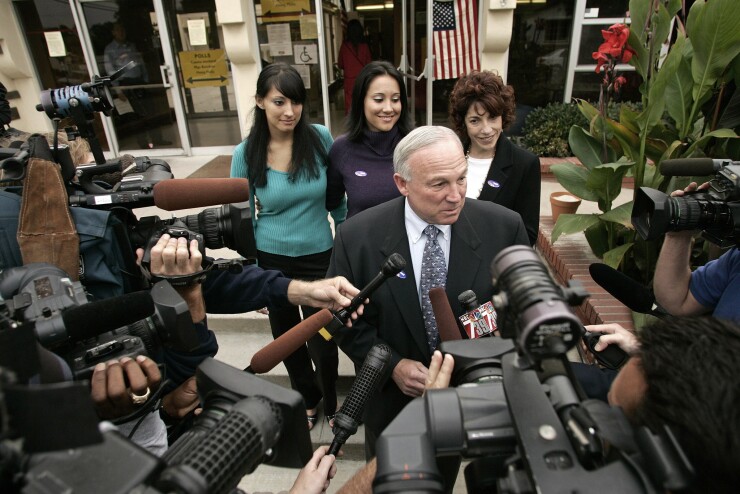LOS ANGELES — San Diego's largest union will ask the state Supreme Court to review an appeals court ruling affirming a city pension measure.
San Diego got a reprieve on April 10 from the state’s Fourth District Court of Appeals in litigation over voter-approved pension changes passed in 2012.
An adverse opinion from the appeals court could have cost the city millions by creating retroactive pensions for more than 3,000 workers hired over the past five years.
The San Diego Municipal Employees Union’s board of directors voted unanimously last week to appeal the decision.
“If left unchallenged, last week’s Appeals Court decision would not only prevent San Diego City employees hired on or after July 20, 2012 from being put back into a defined benefit pension system, but could also undermine future bargaining rights for all public sector employees in California,” the union board said of its decision.

The union expects the higher court to decide on whether or not it will review the case by summer.
Proposition B shifted all newly-hired city employees, except police officers, from the city’s traditional defined benefit plan into a 401(k)-style retirement plan.
The three-court panel overturned a 2015 Pubic Employment Labor Relations board ruling that said the pension cuts were illegal, because of then-Mayor Jerry Sanders involvement in the successful citizen’s initiative responsible for the changes.
The state’s labor relations board had ruled that city officials should have discussed Proposition B with its six unions before the measure was placed on the ballot.
The issue was whether it was illegal for elected officials to campaign for the measure without first conferring with city unions. The judges found that city officials were within their rights because they campaigned as individuals, advocacy protected by state law and the First Amendment.
In an interview following the appeals court decision, Michael Zucchet, the union’s general manager, said the appeal’s court decision ratified “a scheme that San Diego executed to avoid the state bargaining law."
“Mayor Sanders testified under oath at the labor relations board that he wanted to avoid laws regarding employees,” Zucchet said. “To get around the law, he launched this citizens’ initiative and he did it from the mayor’s office.”
Sanders and other supporters of the initiative gathered signatures as “private citizens” to avoid a requirement that public officials have to meet with unions before placing pension-related issues on the ballot.
“The reason I did it as a private citizen was because if the council put it on the agenda, it would have been contested immediately by the unions,” Sanders said in a 2012
As the lone city offering new employees a defined-contribution plan instead of a traditional pension plan, San Diego has experienced some well-publicized problems filling vacancies, Zucchet said.
San Diego Mayor Kevin Faulconer had lauded the appeals court decision saying it meant the city “doesn’t have to turn back the clock on pension reform.”





